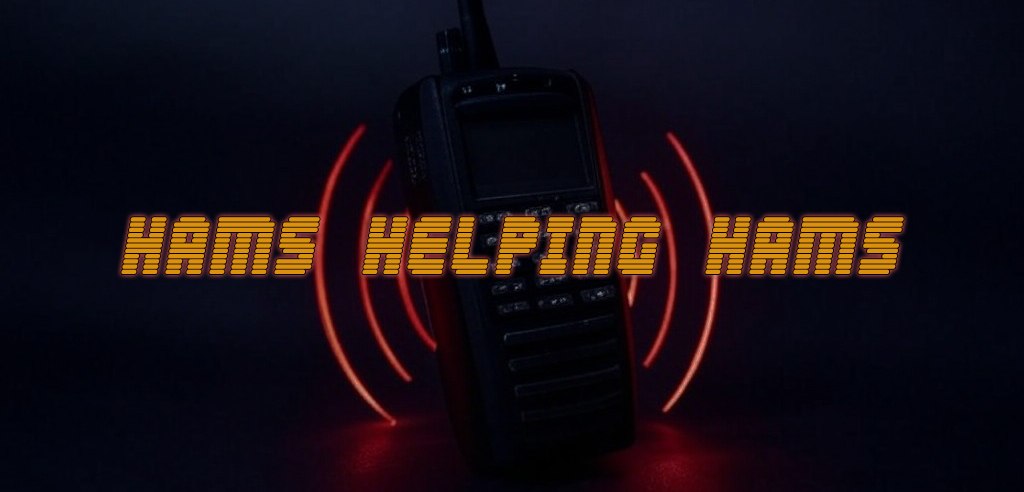I’ve been incredibly fortunate to engage in hobbies where the communities are warm, welcoming, and supportive. Ham radio has proven to be no exception. My journey into this world began with YouTube videos, which typically offer a one-way form of communication. However, that changed when I dove into the online communities of these YouTubers. It’s somewhat ironic that ham radio, a hobby centered on RF communication, is bolstered by such a vibrant online community. This really speaks to our current era, being in the 21st century.
Before the advent of the internet, clubs were the primary way ham radio enthusiasts met for education, collaboration, and camaraderie. Clubs are still vital today, and while I’ve only attended one club meeting so far in my ham radio journey, I definitely plan to visit more.
What has been particularly beneficial for me is Discord. For any new ham out there, I highly recommend finding and joining a community. I’ve mentioned this in several of my posts, but the Ham Radio Crash Course server has been an outstanding resource for me. The community there is incredibly friendly, welcoming, and always ready to help. I’ve never seen anyone get annoyed with simple or repetitive questions. This experience has been consistent for me, except perhaps in some older online forums where gatekeeping can occasionally rear its head, often from veteran hams. My advice? Seek out the younger, more open communities where gatekeeping is less of an issue.
If you’re an experienced operator eager to assist newcomers like myself, here are some ways you can contribute to the growth and enjoyment of the hobby for new hams:
- Mentorship
- Elmering: The term “Elmer” in ham radio refers to someone who mentors new hams. Experienced operators can guide beginners through the licensing process, explaining the rules and regulations, and helping them study for the exams.
- Personal Guidance: Offering one-on-one sessions to go over equipment, antenna setup, and operational techniques.
- Education:
- Classes and Workshops: Organizing or participating in classes that teach radio theory, propagation, and practical skills.
- Q&A Sessions: Holding informal sessions where new hams can ask questions about anything from radio etiquette to technical issues.
- Technical Support:
- Equipment Selection: Helping newcomers choose the right equipment for their needs and budget, including radios, antennas, and accessories.
- Setup Assistance: Providing help with the installation and tuning of antennas, setting up transceivers, and troubleshooting issues.
- Operational Practice:
- On-Air Practice: Conducting practice sessions on the air where new hams can feel comfortable making their first contacts. This includes using nets specifically for new hams or slow-speed CW practice sessions.
- Contests and Events: Encouraging participation in local or regional contests or events where new hams can gain experience in a supportive environment.
- Community Building:
- Local Clubs or Online Communities: Inviting new hams to join or even start local clubs or online communities where they can meet other enthusiasts, share experiences, and learn in a community setting.
- Field Days and Public Service Events: Introducing newcomers to events like Field Day, where they can see ham radio in action and participate in emergency communications exercises.
- Resource Sharing:
- Literature and Online Resources: Sharing books, manuals, websites, and forums that are particularly useful for beginners.
- Software Tools: Introducing them to logging software, propagation prediction tools, or digital mode software.
- Encouragement:
- Celebrating Achievements: Acknowledging when a new ham makes their first contact or passes an exam, which can be very motivating.
- Constructive Feedback: Offering constructive criticism in a way that encourages learning rather than discouragement.
- Safety and Ethics:
- Best Practices: Teaching the importance of operating legally and ethically, respecting band plans, and avoiding interference.
- Emergency Preparedness: Educating about the role of ham radio in emergencies and how to prepare for such situations.
Though I’m just starting my journey in this fascinating world, my aim with this website is to document my growth, share my experiences—both the victories and the learning moments—so others can benefit from them. As I gain more confidence, I also plan to share the knowledge I acquire. If you’re a seasoned radio enthusiast reading this, I encourage you to engage with online communities to mentor newcomers. It’s your involvement that will ensure the hobby continues to thrive and expand in the years ahead. If you have any questions or comments drop me a line at K8WOORadio@gmail.com!

